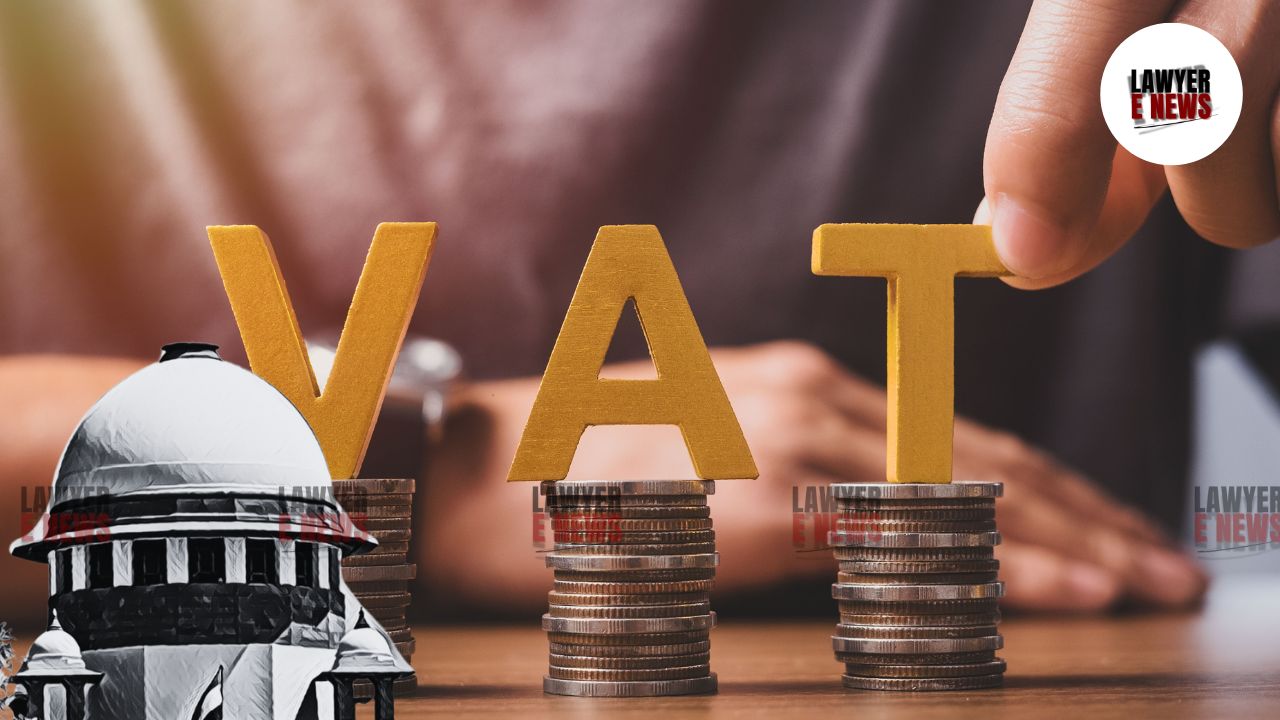-
by sayum
14 February 2026 2:22 PM



In a significant ruling, the Supreme Court dismissed appeals filed by the State of Gujarat, confirming that Value Added Tax (VAT) and purchases without claimed or granted tax credit should not be included in the taxable turnover of purchases under the Gujarat Value Added Tax Act, 2003 (GVAT Act). The decision, rendered by Justices Abhay S. Oka and Augustine George Masih, upholds the Gujarat High Court's interpretation that strictly confines the definition of "purchase price" within the boundaries set by the GVAT Act.
The dispute arose when M/s Ambuja Cement Ltd., the respondent, calculated its taxable turnover by excluding the VAT component and the value of purchases where no tax credit was claimed under Section 11(3)(b) of the GVAT Act. The Deputy Commissioner, during an audit assessment, included these amounts in the taxable turnover, leading to a legal challenge by the respondent. The Gujarat Value Added Tax Tribunal and subsequently, the Gujarat High Court, ruled in favor of M/s Ambuja Cement Ltd., prompting the State of Gujarat to appeal to the Supreme Court.
The Supreme Court meticulously analyzed the definition of "purchase price" under Section 2(18) of the GVAT Act, which does not expressly include VAT. The Court emphasized that the definition is exhaustive, and the legislative intent is clear that only duties under the Central Excise Tariff Act, 1985, and the Customs Act, 1962, are included in the "purchase price". The Court stated, "The purchase price would not include Value Added Tax, as the legislature did not intend to include it within the definition provided in the Act."
The Court reiterated the principle of strict interpretation in tax laws, holding that statutes should be read as they are written. The judgment referenced the case of Commissioner of Wealth Tax, Gujarat-III, Ahmedabad v. Ellis Bridge Gymkhana, where it was held that no person can be taxed by implication and that clear legislative language is required to levy a tax. The Court stated, "Article 265 of the Constitution prohibits the levy of taxes without the authority of law. Tax statutes must be interpreted strictly according to their natural construction."
The Supreme Court reasoned that the exclusion of VAT from the "purchase price" was consistent with the legislative framework. The definition of "turnover of purchases" under Section 2(32) of the GVAT Act, which depends on the "purchase price", further supported this interpretation. The Court held that "the intention of the legislature was to exclude VAT from the ambit of purchase price", thereby aligning the calculation of taxable turnover with the statutory provisions.
The Supreme Court’s dismissal of the appeals confirms the proper interpretation of the GVAT Act, marking a precedent for the treatment of VAT in tax assessments. By affirming the High Court’s judgment, the Supreme Court has reinforced the principle of strict interpretation in tax law, ensuring that taxpayers are not burdened beyond the explicit provisions of the law. This ruling will guide future cases involving the computation of taxable turnover under VAT laws, emphasizing the importance of legislative clarity in tax statutes.
Date of Decision: August 2, 2024.
The State of Gujarat vs. M/s Ambuja Cement Ltd.
